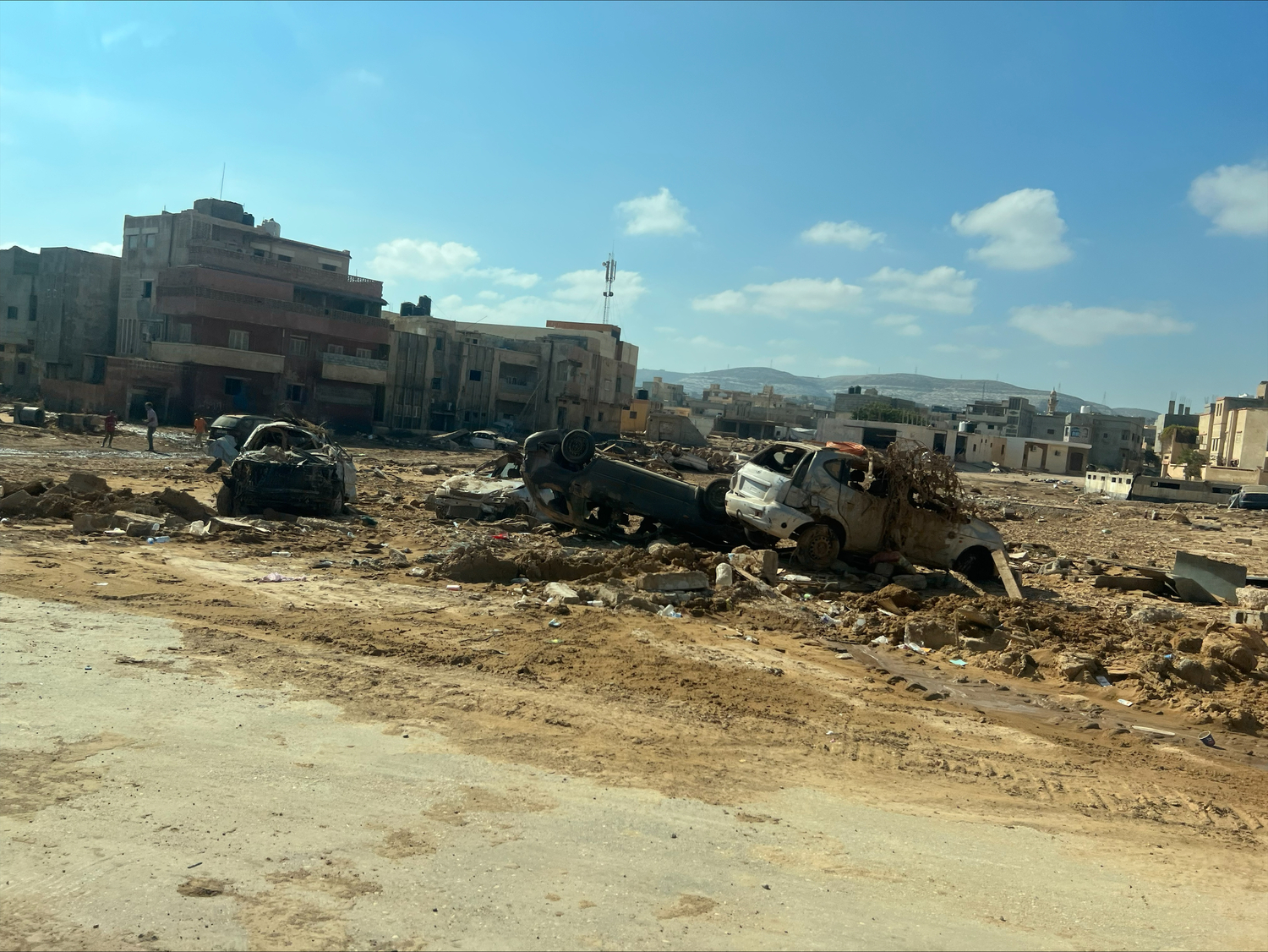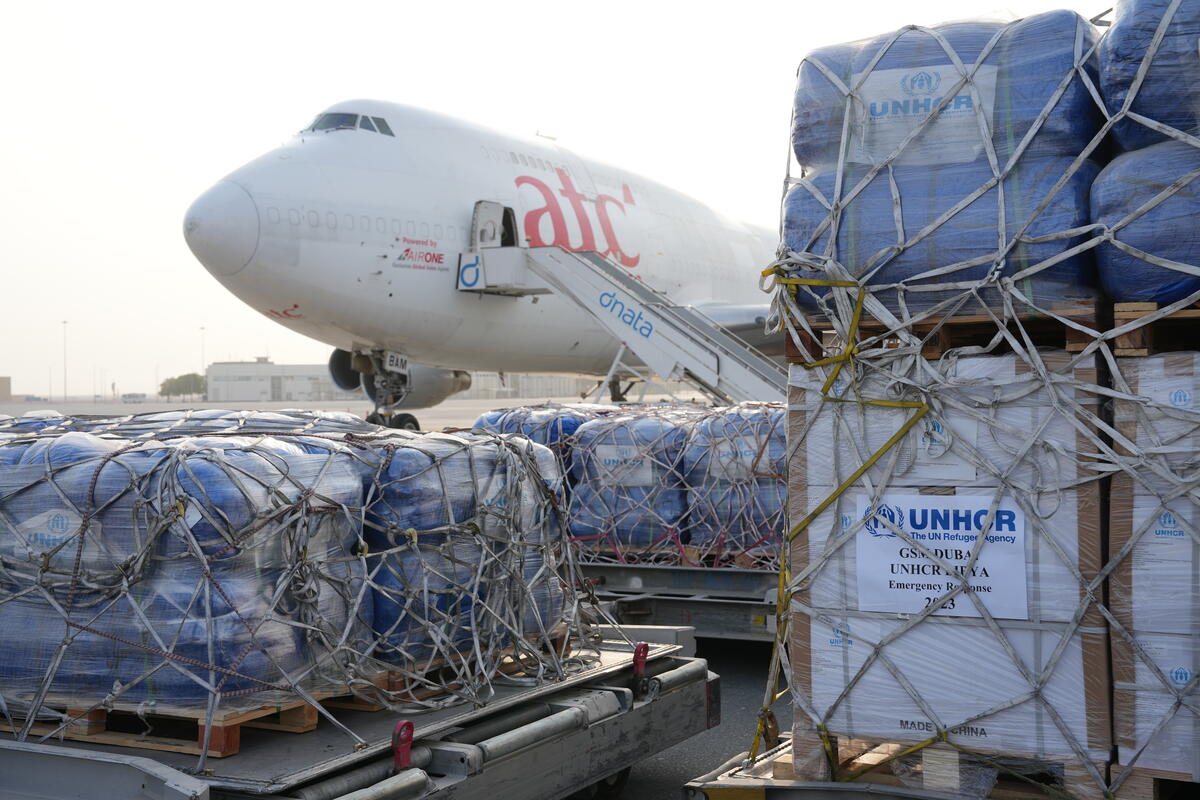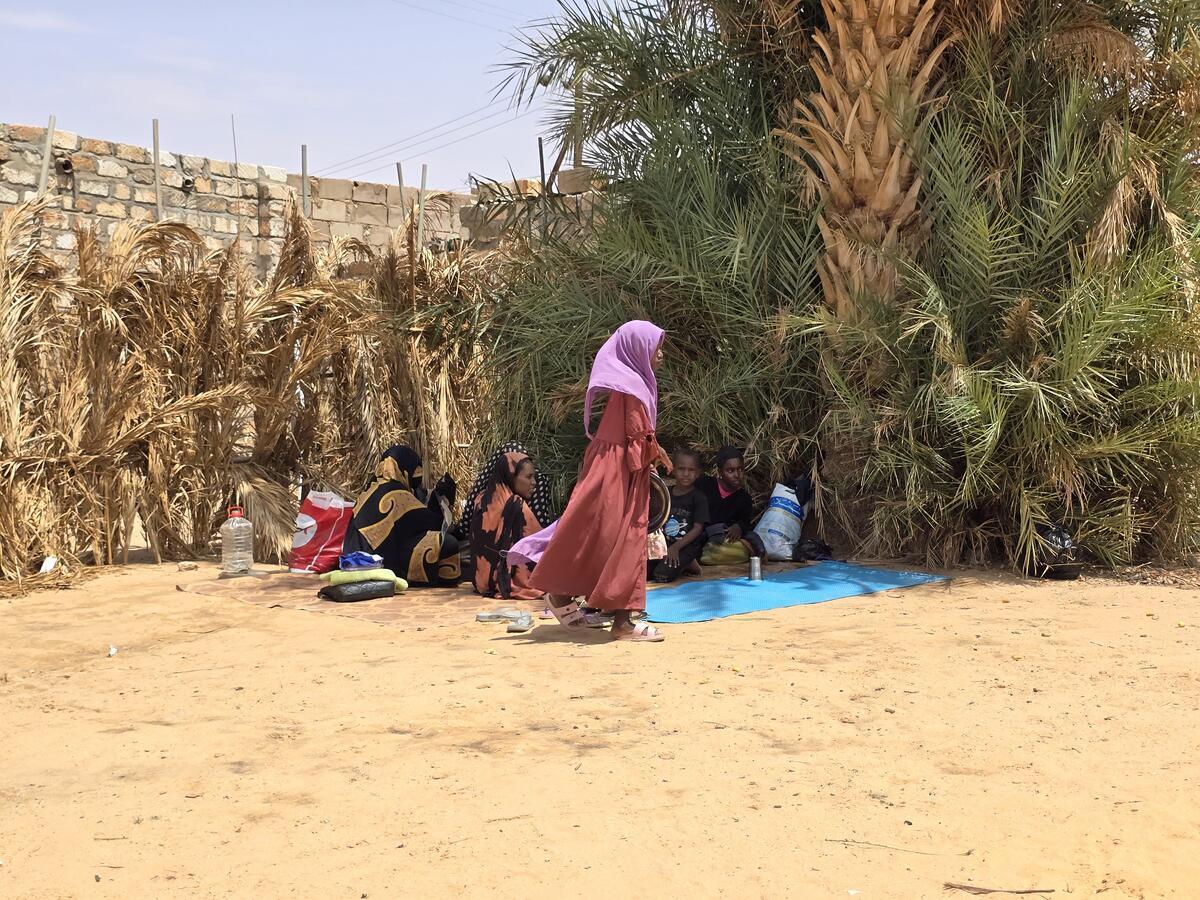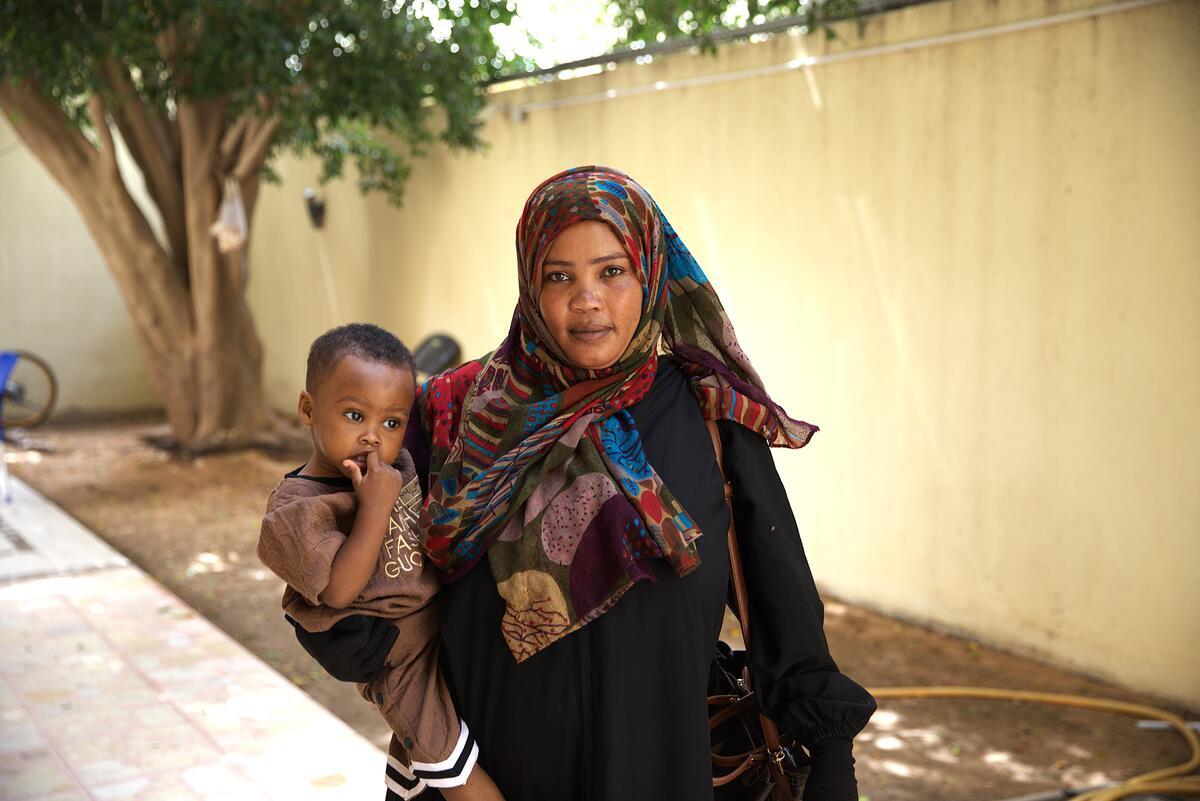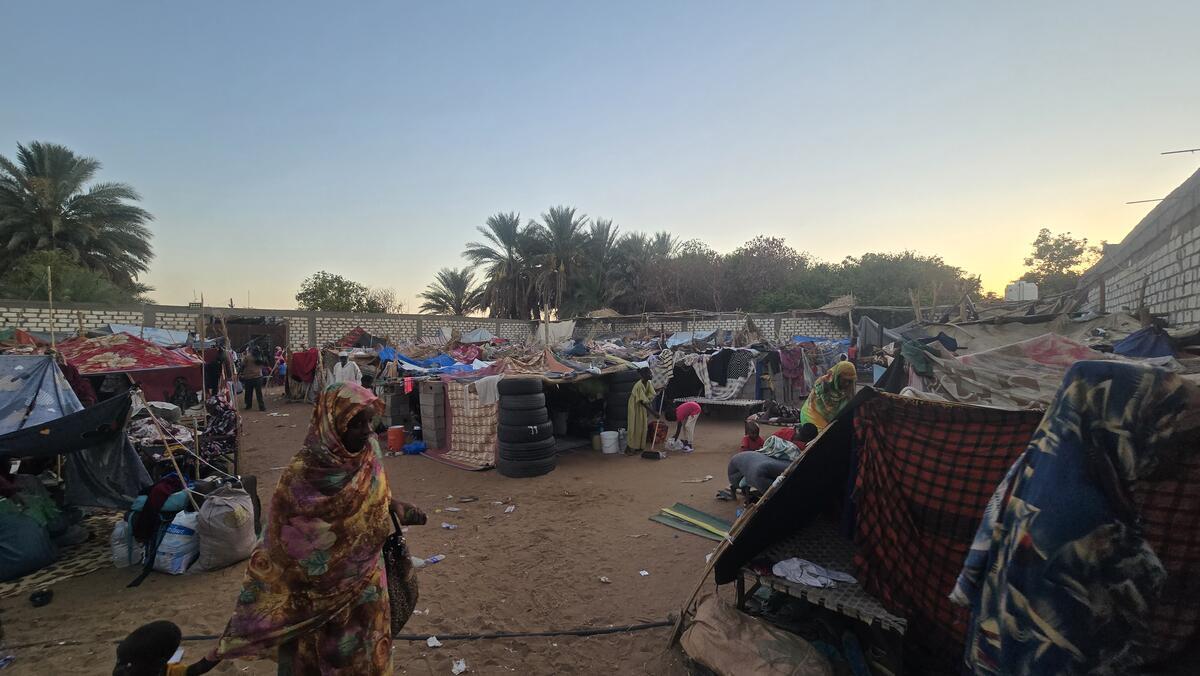Displaced Libyans return to rebuild Gaddafi's hometown; face needs
Displaced Libyans return to rebuild Gaddafi's hometown; face needs

SIRTE, Libya, April 16 (UNHCR) - Ali points to a housing block that looks like a slab of Swiss cheese - full of holes from artillery fire - and says he feels lucky that he can at least stay in his own damaged apartment nearby. "The flat above mine was hit by a tank shell," he told UNHCR, adding that two of his rooms had been affected and he'd need to spend 5,000 to 6,000 Libyan dinars (US$4,000 to US$4,800) to repair the damage.
Ali, 33, an administrator at Sirte University, is also happy to simply be alive. "A friend just died in front of me on that corner. A bomb exploded next to him," he said, recalling the assault on Sirte last September and October that forced tens of thousands of people to flee the birthplace of Muammar Gaddafi.
Almost 60,000, or more than 70 per cent have returned since the Libyan leader's killing here on October 20. "It began as a fairly gradual return and it speeded up," said aid worker Wouter Takkenberg. "In many ways, Sirte has returned to almost normal." Amid battle-scarred buildings, the streets are full of cars and people, shops and restaurants do a brisk trade, and rebuilding has begun. Electricity and water supplies are working again in most areas.
But the needs of returnees and those displaced within the coastal city are still great and this is keeping organizations like UNHCR and its partners busy. Many of the returnees found their homes destroyed or, like Ali, damaged and in need of repair.
Some 20,000 residents remain displaced, unable to return to their homes in a city that probably suffered more material damage than any other in Libya last year. Almost 75,000 people remain internally displaced within Libya, mostly from Misrata and Sirte as well as the town of Tawergha and the Nafousa Mountains.
Takkenberg, who spent several months in Sirte for UNHCR implementing partner, ACTED, said that in Sirte, "You have a large number of people staying with host families." He said they needed food and non-food items, "especially as the prices in Sirte have risen."
And there are also dangers, including unexploded ordnance and lingering insecurity. Aside from distributing food and aid to tens of thousands, ACTED has helped assess the condition of hundreds of buildings, while the Mines Advisory Group gives risk education to students in newly reopened schools.
"There is a huge amount of unexploded ordnance throughout the city. It's a major problem," said Takkenberg, adding that this was affecting livelihood programmes and schools. UNHCR, meanwhile, regularly monitors protection needs and has provided assistance to IDPs in Sirte and elsewhere in Libya.
Ali, who spent three weeks sheltering in a basement before fleeing to the town of Zlitan in October to escape the shelling, said his main concerns were about security and money. He continues working, but receives irregular payments. "It's only the salaries issue, otherwise I could survive," he explained.
Many others cited finances as a major concern, especially when they first got back to Sirte and found the banking system in tatters. "There was no liquidity in the city . . . at that point there was major need among the entire population," said Takkenberg, adding that the situation was improving and "the economy is coming alive again."
Thirty-five-year-old Mohamed, a state employee like so many Libyans, was also worried about security and money. He said he had received some back pay from the interim authorities, but was unable to work as normal. "Only teachers and doctors are working full time," he said.
Mohamed had hurried his wife and two children into their car during a NATO air strike in September and drove away from their apartment block in Sirte's heavily damaged Zone Two. They found shelter with relatives in a village to the east of the city.
When they returned in November, Mohamed found "there were a lot of my belongings missing," including a computer and the television. But there was a bonus. "I was really worried because I was thinking all of Sirte had been destroyed. But, thank god, I found my flat in a good condition."
Al-Sharef, 55, a member of the extended Gaddafi clan, was not so lucky. His rented home on the edge of Zone 2 was badly damaged, so he is now living with his family in a suburb of Sirte.
He, his wife and children live in one of a cluster of several wooden bungalows rented by displaced families. Despite the tribal connection, they are clearly a poor, though hospitable family. Al-Sharef earns 250 dinars a month as a watchman on an adjacent construction site, but payment is patchy and the rent is 170 dinars. He also has to pay for water that is trucked in, but he connected a line to the electricity mains.
Then there is the cost of transport for his five children who are at school - 100 dinars a month in all. "We need help for everything, starting with money and housing and accommodation," Al-Sharef told UNHCR. From time to time, NGOs bring food, he said, adding that the family received free medical care.
ACTED, working with the World Food Programme, the Libyan Red Crescent and local relief committees, has been distributing food to 10,800 families.
UNHCR has provided relief items to IDPs throughout the country. In 2011 alone, the agency distributed non-food items to more than 140,000 people and assessed shelter damage in 9,941 homes. In collaboration with its partners, UNHCR coordinated assistance to IDP sites throughout the country and helps identify protection gaps. In consultation with UNICEF and LibAid, UNHCR is working on a survey on IDP access to education.
Meanwhile, none of the people questioned by UNHCR complained about retribution. "From my side, it's the same as before," Al-Sharef said, adding: "Most of my relatives came back without any problems." The whole populations of other pro-Gaddafi towns to the north have been displaced.
"I believe in the future, that it's going to be better - and I'm patient," Al-Sharef stressed. Across town, Ali said his goodbyes and headed down towards the beach. "I'm going off to fish - to make money and to eat. I do it two or three times a week, depending on my university duties," he revealed.
By Leo Dobbs in Sirte, Libya



